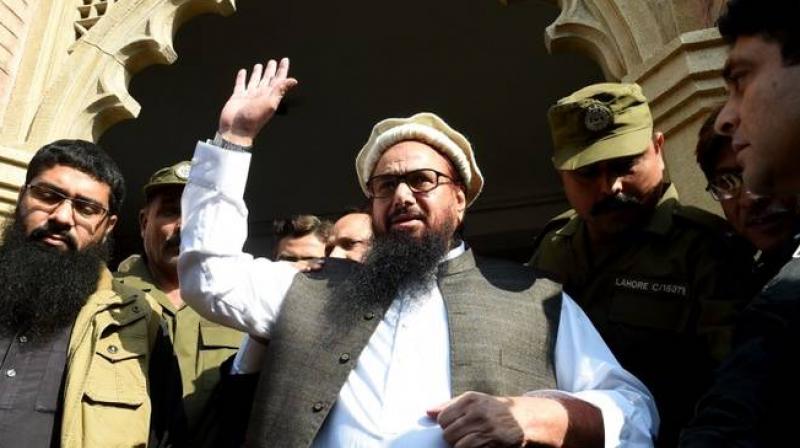Govt tried to keep Hafiz Saeed in jail, but there're little evidence against him: Pak
Pakistan's Ambassador to the US Aizaz Ahmad Chaudhry was referring to the evidence provided by India against Saeed.

Washington: Little evidence against JuD chief Hafiz Saeed compelled the courts to set him free, Pakistan's top diplomat in Washington on Tuesday, days after the US demanded the immediate re-arrest and prosecution of the Mumbai terror attack mastermind.
Pakistan's Ambassador to the US Aizaz Ahmad Chaudhry was referring to the evidence provided by India against Saeed.
The JuD chief, who carries a bounty of USD 10 million announced by the US for his role in terror activities, walked free on November 24 after the Pakistan government decided against detaining him further in any other case.
He was under detention since January this year.
With "that kind of little evidence, it has been very difficult for the courts in Pakistan to keep him behind bars," Chaudhry told a Washington audience.
"What the government did was using some of these other laws like maintenance of public order, and others to keep him behind bars. But the courts are free in Pakistan. They rule regardless of what the government does or does not. They do it in the best interests of justice and therefore they set him free," Chaudhry said in his remarks at the Carnegie Endowment for International Relations.
He was responding to a question on the White House's statement on November 25 in which the US strongly condemned the release of Saeed from house arrest in Pakistan.
Chaudhry said that Pakistan was following the UN Security Council resolution on the matter.
Under the UNSC designation, he said Saeed would not carry arms, raise funds and ravel internationally.
"We have been implementing that regime because Hafiz Saeed was on that list and faithfully," he said.
Chaudhry said the situation in South Asia was not good.
"India and China have an uneasy peace. India and Pakistan are not talking. Afghanistan remains not in a good shape and the security situation has deteriorated by all accounts," he said.
Responding to a question on India's role in Afghanistan, the Pakistani diplomat said that Islamabad has objections to the use of Afghan soil to create instability in Pakistan.
"We believe that India if it is participating in the development activities of Afghanistan of course fine. But it does not have a military or political role in Afghanistan," he said.
India, he alleged, has "very little interest" in stabilising Afghanistan.

